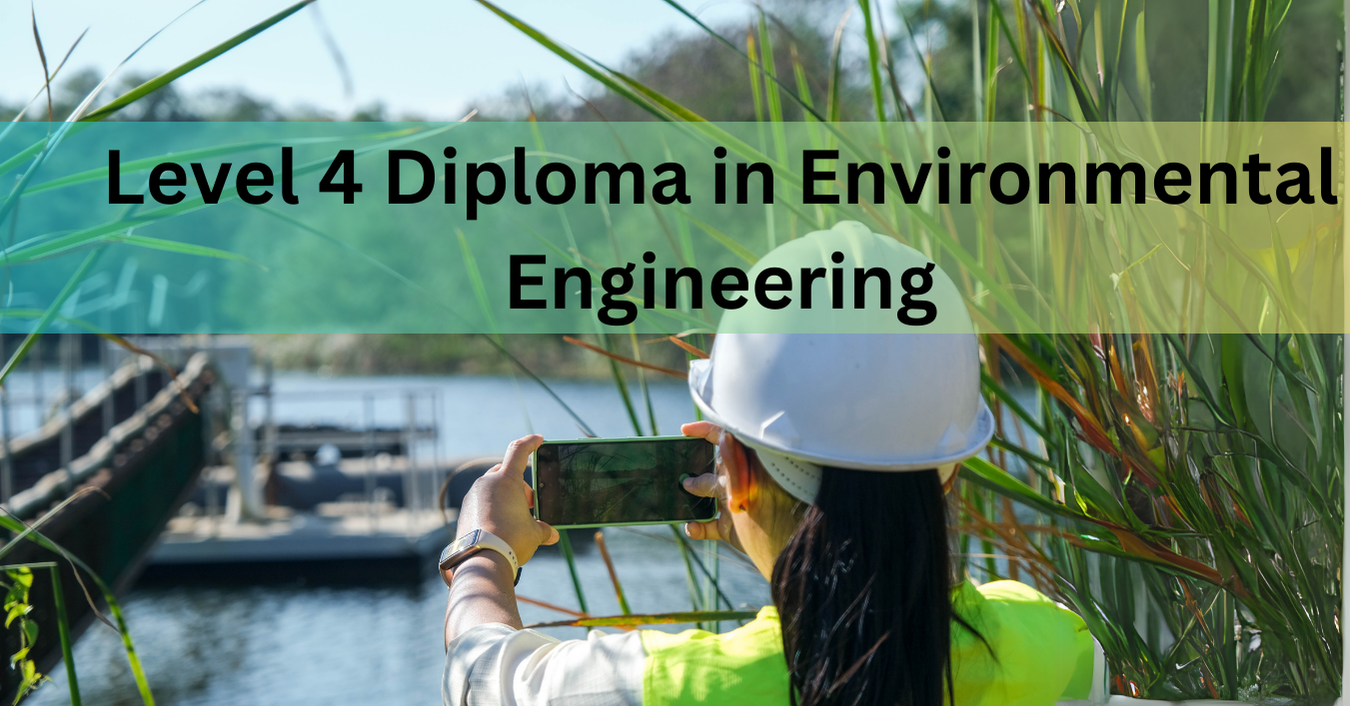Course OverviewThe Level 4 Diploma in Environmental Engineering offers learners an in-depth understanding of the technical and scientific principles behind environmental engineering and management. This course covers essential topics such as water and wastewater treatment, air pollution control, environmental impact assessments, waste management systems, and sustainability practices. It provides learners with the necessary skills to address the growing challenges of environmental protection, resource conservation, and sustainability. Ideal for those pursuing careers in environmental engineering, sustainability, and environmental consulting, this diploma equips students with both theoretical knowledge and practical applications in the field.Benefits
- Gain a deep understanding of environmental engineering principles and practices.
- Learn to design and implement systems for controlling pollution, managing waste, and conserving resources.
- Understand key environmental processes such as water and wastewater treatment, air pollution control, and energy efficiency.
- Enhance your employability in industries such as environmental engineering, renewable energy, and sustainable development.
Learning OutcomesUpon successful completion of this diploma, learners will:
- Understand the core principles of environmental engineering and sustainability.
- Be able to design and implement engineering solutions for air, water, and waste management.
- Learn to assess and mitigate environmental impacts through technical and sustainable methods.
- Understand the principles of environmental health and safety, and their application in industrial settings.
- Develop skills to conduct environmental impact assessments (EIAs) and environmental audits.
- Gain knowledge of renewable energy technologies and their integration with environmental engineering practices.
Study Units
- Introduction to Environmental Engineering
- Overview of the role of environmental engineering in addressing global environmental challenges.
- Study of environmental laws, regulations, and the ethical responsibility of engineers in protecting the environment.
- Water and Wastewater Treatment Systems
- Techniques for designing and operating water and wastewater treatment plants.
- Study of filtration, coagulation, sedimentation, and biological treatment processes.
- Understanding the importance of water quality standards and regulatory compliance.
- Air Pollution Control and Management
- Overview of air quality monitoring and pollution control technologies.
- Study of methods to reduce emissions from industrial processes, including scrubbing, filtration, and chemical treatments.
- Understanding the impact of air pollution on public health and the environment.
- Solid Waste Management and Recycling
- Principles and practices of managing solid waste, including waste reduction, recycling, and disposal methods.
- Study of waste-to-energy technologies and landfill management.
- Designing and implementing waste diversion and sustainability programs.
- Environmental Impact Assessment (EIA)
- Techniques for conducting EIAs to assess the potential environmental impact of projects.
- Understanding the key stages of an EIA: scoping, environmental impact prediction, and mitigation planning.
- Legal and ethical considerations in the EIA process.
- Renewable Energy Technologies and Environmental Integration
- Study of renewable energy sources, including solar, wind, hydroelectric, and biomass.
- Understanding the environmental benefits and challenges associated with renewable energy.
- Techniques for integrating renewable energy systems with existing infrastructure.
- Environmental Health and Safety
- Overview of environmental health issues and their relation to industrial practices.
- Study of safety regulations and environmental standards in workplace environments.
- Developing and implementing health and safety programs for environmental protection.
- Sustainability and Resource Conservation
- Principles of sustainable engineering and resource conservation.
- Study of sustainable construction, green building practices, and resource-efficient technologies.
- Designing solutions for reducing the environmental footprint of industrial operations and infrastructure projects.
Career ProgressionUpon successful completion of this diploma, learners can pursue a wide range of careers in the environmental engineering field, such as:
- Environmental Engineer
- Water Treatment Engineer
- Air Quality Specialist
- Waste Management Engineer
- Sustainability Consultant
- Renewable Energy Engineer
- Environmental Compliance Officer
- Environmental Impact Assessment (EIA) Specialist
These roles can be found in various industries, including environmental consulting, renewable energy, construction, waste management, and government agencies.Why Us?
- Comprehensive Curriculum: This diploma provides an extensive study of core environmental engineering topics, ensuring you acquire the knowledge and skills required for real-world applications.
- Industry-Relevant Training: Learn from experienced professionals and gain insights into the practical aspects of environmental engineering and sustainability.
- State-of-the-Art Resources: Access cutting-edge tools, technologies, and methodologies used in modern environmental engineering practices.
- Globally Recognized Certification: The Level 4 Diploma is well-respected internationally and will significantly enhance your career prospects in environmental engineering and sustainability fields.




